Ghastly Guilt....Senseless Shame
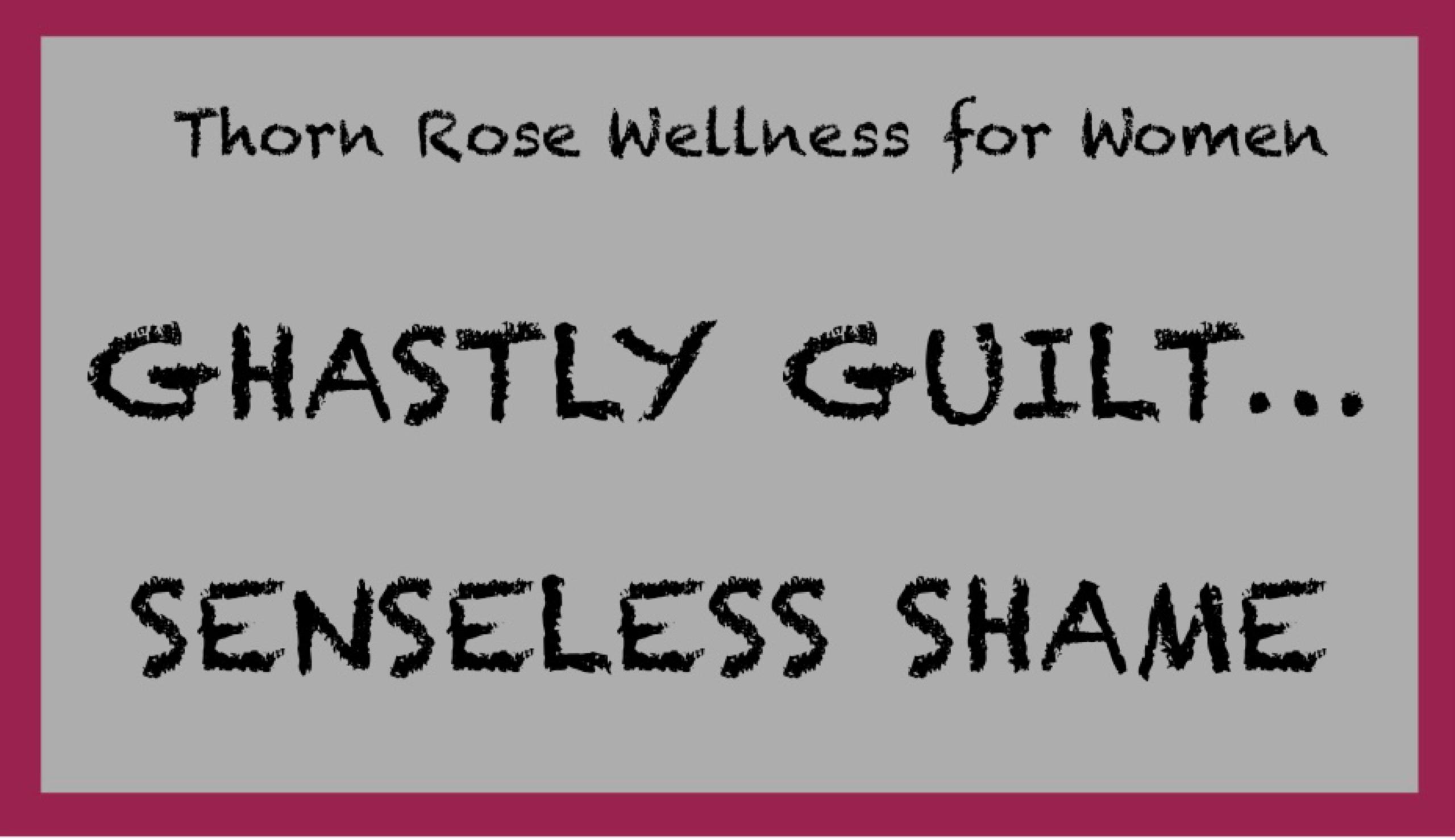
In this article, I’d like to explore the topic of guilt, and shame, with you. I feel that it’s immensely relevant to our well being and wellness as women, and it's an unexamined and misunderstood aspect of our lives as humans!
There are some interesting works on this subject, and Brené Brown is really worth reading, or listening to. This TED talk is a great place to start, and she has written some lovely books, too.
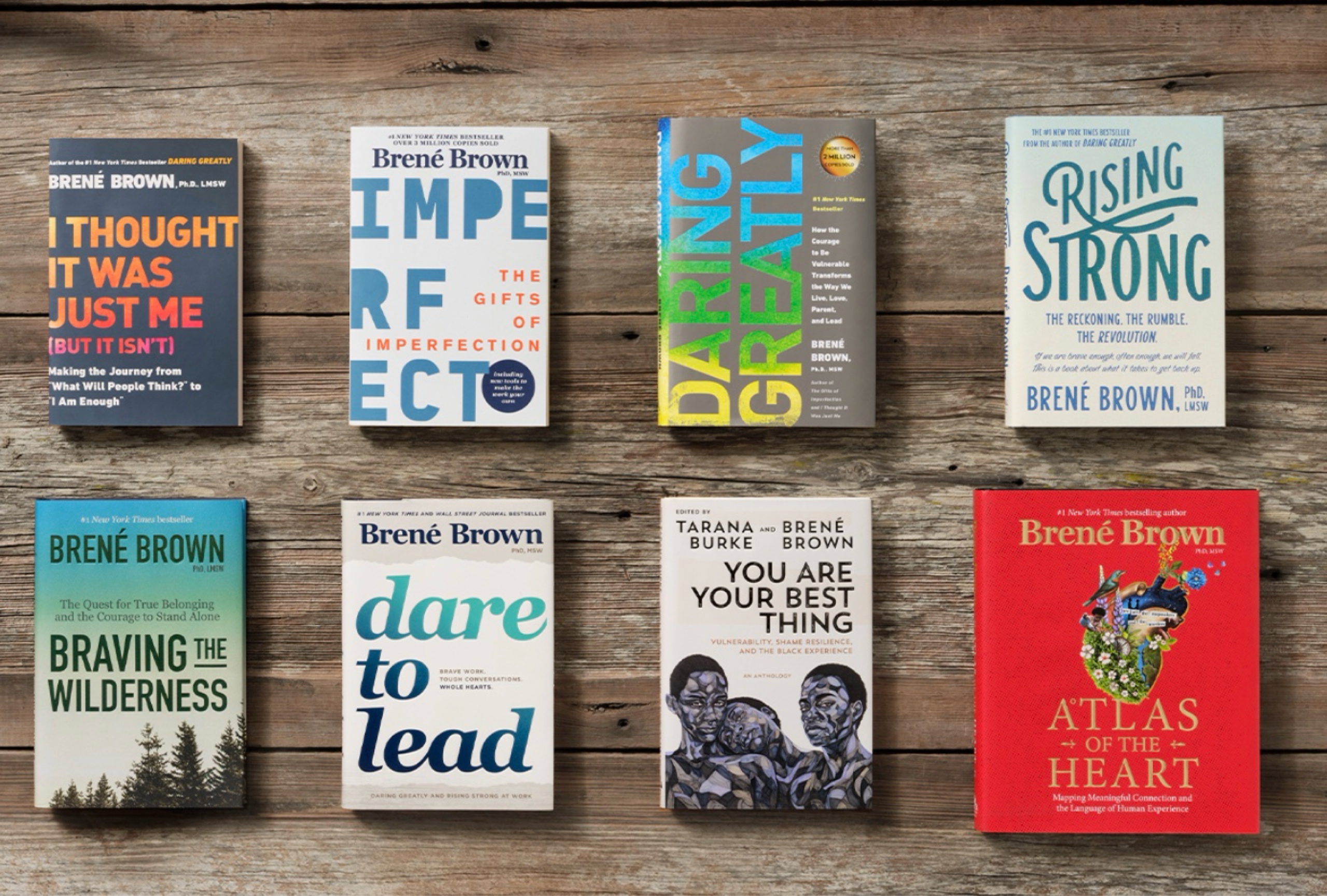
Brene makes a very interesting distinction between guilt and shame. Guilt is “I did bad”. Shame is “I am bad”.
Guilt is potentially a useful indicator, in this context, because it alerts us to the fact that a behaviour needs changing, or reparations need to be made. Shame isn’t about behaviour, it’s about identity, and she argues it is a highly destructive thing to feel.
Generally in our society, we tend to use the term “guilt” when more likely we mean “shame.”
It isn’t hard to see where this all comes from. Shaming is a common parenting tactic, even when it isn’t deliberate. I am sure that everyone could immediately recall a childhood experience of being shamed, feeling shame, without too much difficulty.
It isn’t something we generally like to talk about. Shame is an even more loaded word than guilt, and whilst we might say: “I feel terribly guilty coming out for a night out - I left my husband with screaming kids and a sink full of dishes”, we are less likely to say: “I feel deep shame because I believe I am inadequate as a mother/partner/daughter/fill in the blank”.
Even writing about this, I am a bit uncomfortable, wondering if you will think is an appropriate topic for this programme.
But because it comes up such a lot for women, not addressing it allows its power to keep a hold over us, unchallenged.
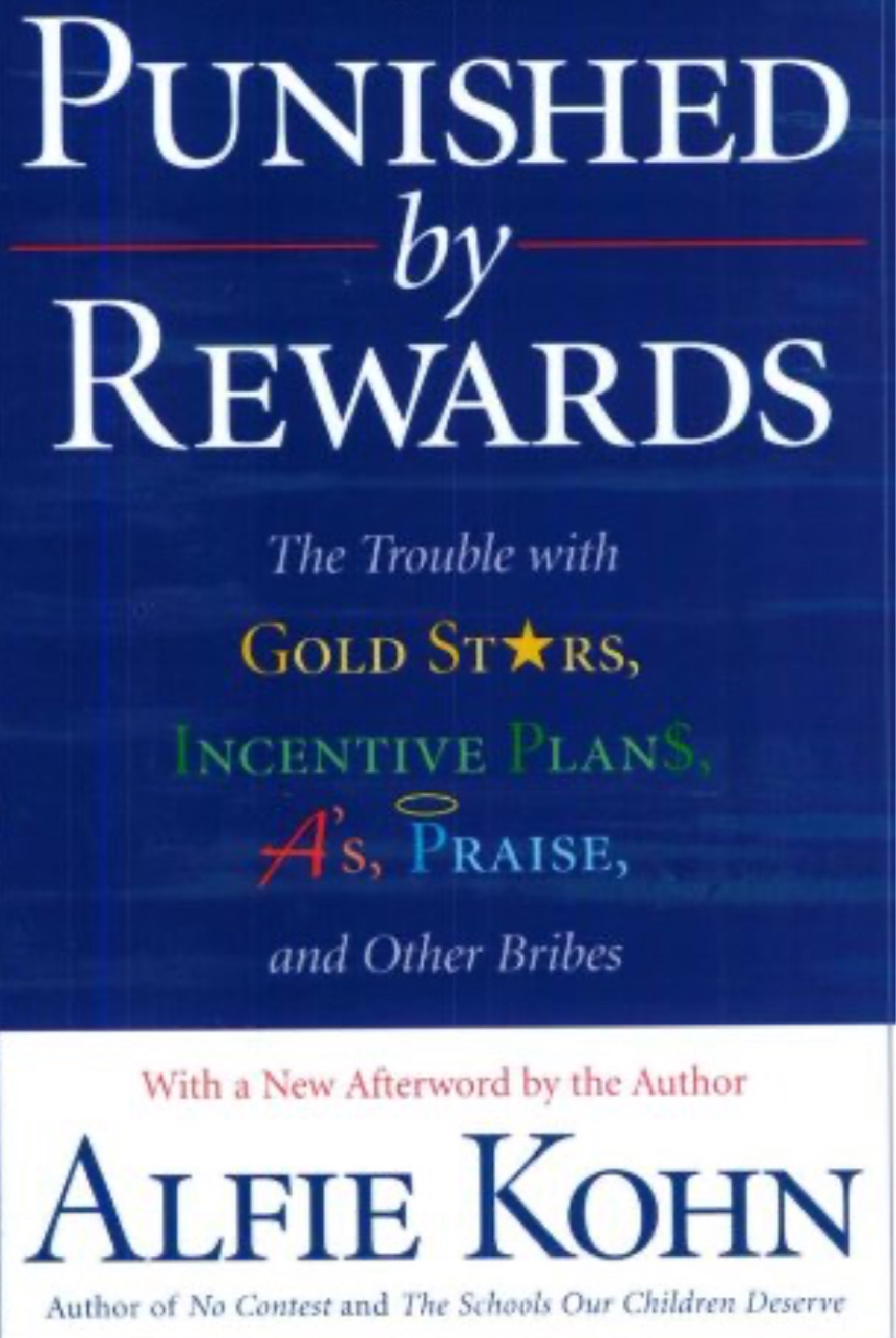
A sense of guilt (more accurately shame), and shaming tactics, are ubiquitous in our society. It underpins a lot of the messages out there around eating, exercise, lifestyle habits, and so on. If you’re at all familiar with Alfie Kohn’s work (“Punished by Rewards is an eye-opening read), or Marshall Rosenberg’s Non Violent Communication, you’ll be aware of the notion that praise is the flip side of criticism, and that praising people almost never leads to the boost in self-esteem that you might hope it would. Praising someone about their appearance doesn’t necessarily make them think: “Damn, I look mighty fine, so and so said so, I feel good about myself”. Or if it does, it also comes with the message: “how I look is important to that person, important enough for them to mention it. What does that mean if I stop looking good, in their eyes? Will they withdraw that approval?”.
I try very hard, here on Thorny Rose, as elsewhere, to be encouraging and not judgmental. Inviting you to choose to do what is good for you, supportive of your health, a gift to your future self, is very different to guilting you into trying harder, or shaming you because you haven’t done as much as you perhaps could, or think you should. I am sure, however, that I am not 100% successful, because none of us are free from the insidious programming. Apparently it was Albert Einstein who said: “what does a fish know about the water in which he swims all his life?”. The fish doesn’t know what water is because it has never experienced anything else. And so it is for shame in our society - can anyone know what it is like to be without it?!
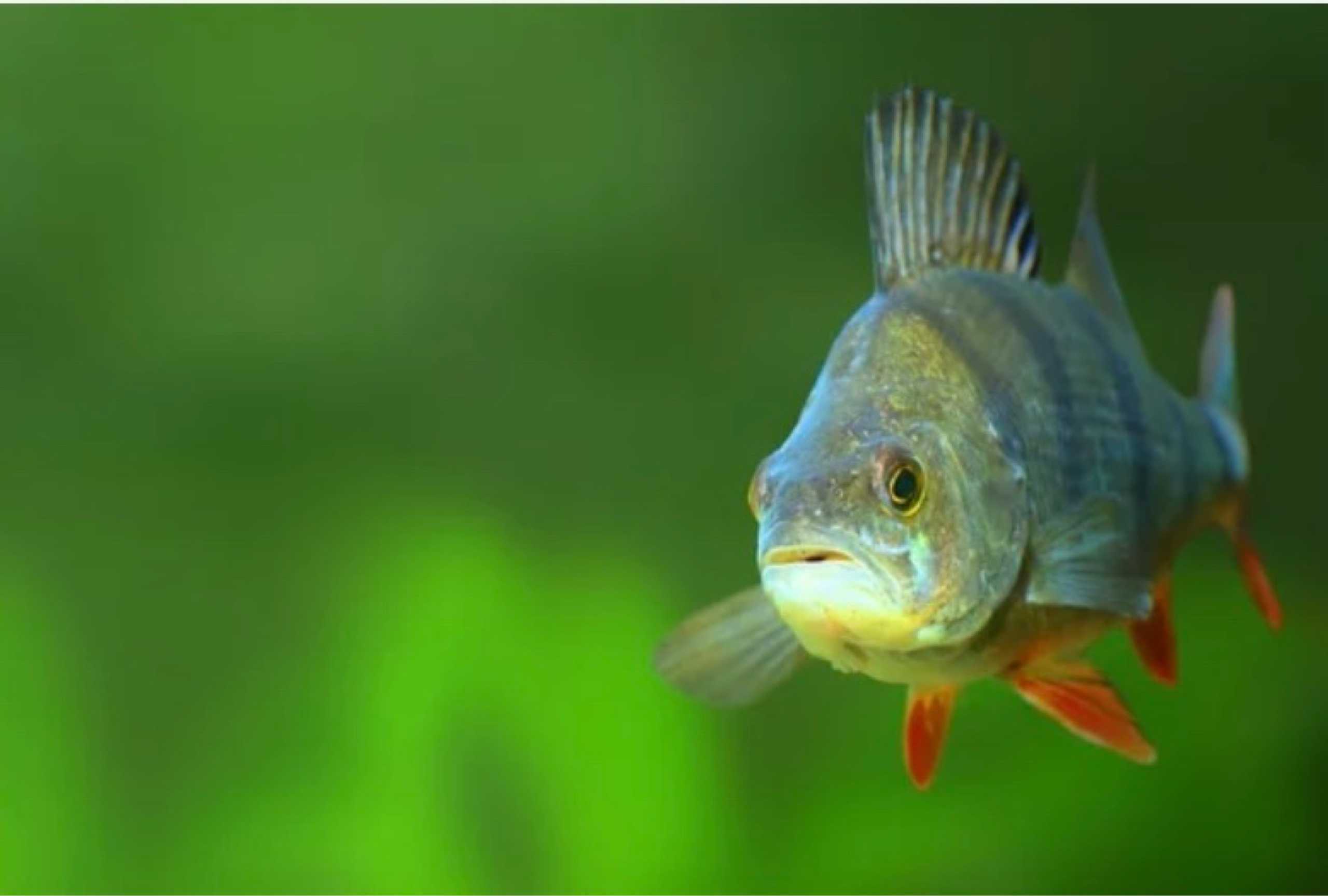
It is worth shining the light of enquiry onto this area, because often there are some unexamined assumptions in there, and many times we feel bad about things which, if we looked at the circumstances more closely, we would realise we didn’t need to.
Often we set ourselves up with an impossible ideal to live up to, and then feel shame when we “fail” to achieve the unachievable.
It was Eve Rosdky who said: “we expect women to work like they don’t have children and raise children as if they don’t work”
In this way, it is possible to feel guilt (or shame) when you are at work because you are not with your children, and to feel guilt (or shame) when you are with your children because you are not at work. Or to feel bad because you are not able to stay late every night, and also to feel bad because you do stay late some nights.
You could feel bad because you take some rest, and you feel lazy, and bad because you don’t get enough sleep, and you know how detrimental lack of sleep is for health.
There are so many more possible examples of this. You certainly don’t need to be a parent to feel shame about yourself, but it is certainly a rich source of such feelings, and society is all too ready to heap judgment on any perceived shortcomings in this area! As it is all too ready to heap judgment on women who might choose not to have children.
Doing Thorny Rose, you might feel bad because you don’t put as much time into regular movement and eating fibre (say) as you think would be good, and you also feel bad because you spend so much time and energy on your health, which others might perceive as “selfish”.
You could feel bad because you take some rest, and you feel lazy, and bad because you don’t get enough sleep, and you know how detrimental lack of sleep is for health.
Feeling bad about yourself both when you do a thing, and also when you don’t do that thing creates an impossible situation, with two contradictory conditions that cannot plausibly be met.
What this amounts to is a continuous vague (or maybe not so vague) sense of guilt (shame), of always being at least slightly in the wrong, of never being good enough, or doing good enough. Of course, this is a stressful way to live (bad for the cortisol levels), drains our energy, and saps the joy we could experience in life. It serves no good purpose.
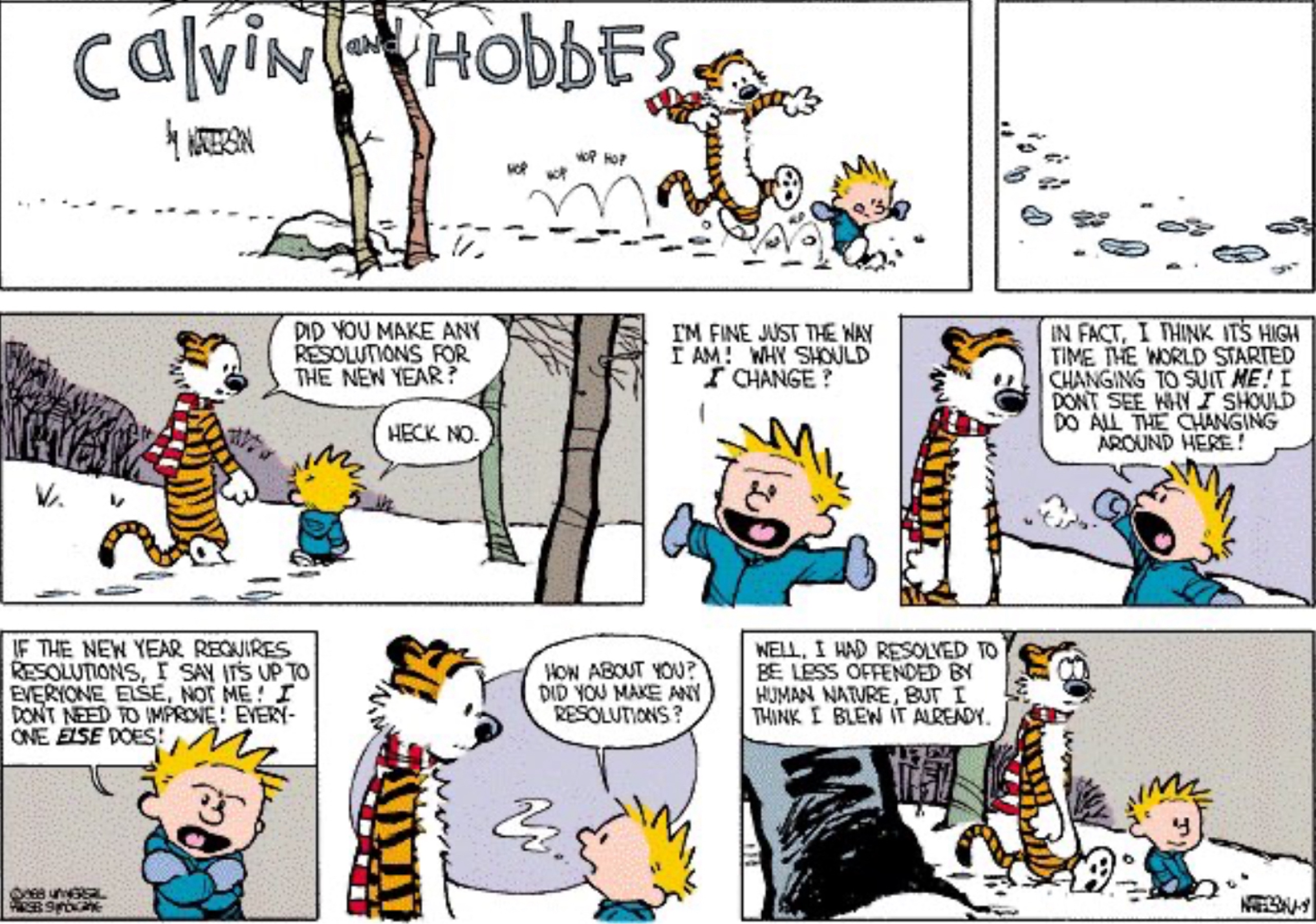
The antidote to this sense of always being somewhat in the wrong is not to just remove all expectations from ourselves and declare that since we are “good enough” we need never make any changes. That’s a stagnant place to be, and there’s so much joy and purpose in becoming who we were always meant to be.
What we are trying to do is take the emotional sting out of the tail.
If we were able to objectively look at where we are now and where we would like to get to, we wouldn’t need to feel bad about ourselves if we weren’t doing all that we could to get there. But we would see that if we wanted to get to a particular place, our current activities wouldn’t get us there, and we would need to change what we were doing in order to meet our goals.
If we knew enough about how health and fitness progresses, we could look at what we are doing currently and see whether we would end up where we want to be in maybe 3 years time, 10 years time, or that our progress would be so slow we might run out of available years to get there, especially accounting for the additional challenges of ageing. Or indeed, that our current habits are likely to lead to a decline in health quite soon. That might allow us to reassess what we are currently doing in order to get to where we want to be. There wouldn’t be any “shoulds” or shame, we would just see that IF we want a certain outcome, THEN we need to make some changes.
We might also see that IF we want this particular outcome THEN yes indeed we do need to spend some time achieving that, and to feel shame for doing so makes no sense at all.
Sometimes holding something up to scrutiny like this makes its power instantly dissolve.
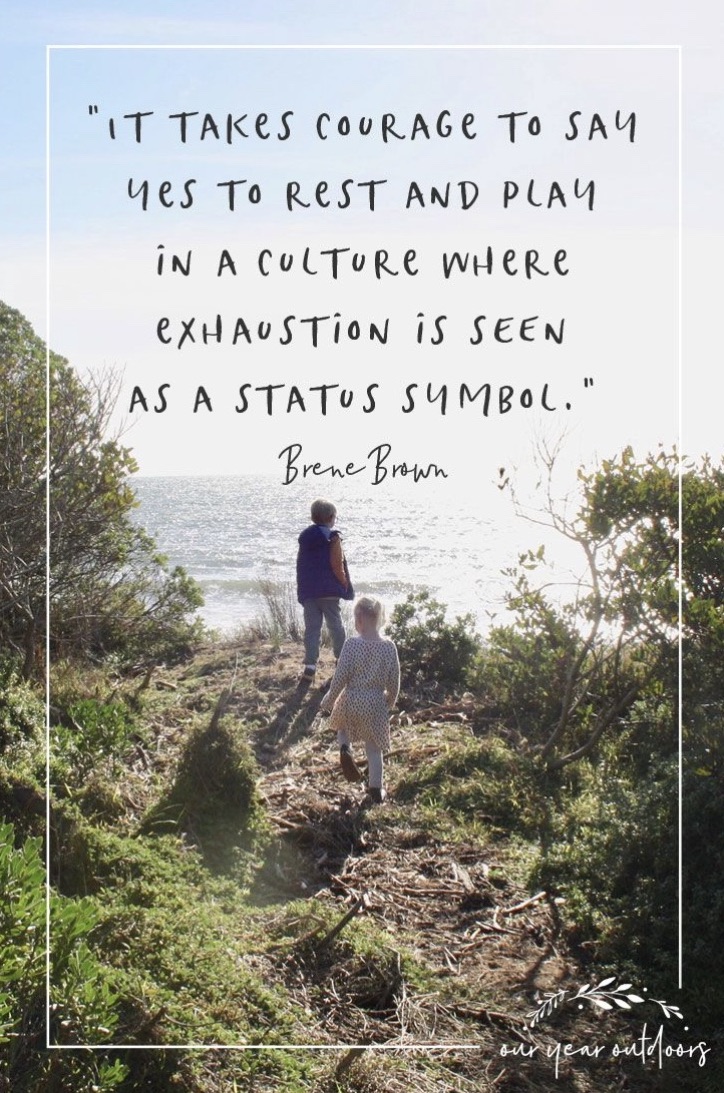
Resting is one of the things women often feel most shameful about.
Just today, my son came home early from college and I was watching The Apprentice while I ate my lunch. Now, I could point out that I haven’t sat down in front of the telly for more than a week, and that I’ve been very busy, and that it was only for a quick break, and so on. I am relieved that I get to mention that, even though my point in mentioning that is to point out that I shouldn’t feel the need to do so. We joked about how he came home early to catch me out, and that in fact all I ever do when they are not around is lounge around watching the tv. But joke as we did, I still felt a pang of guilt? Shame? Around watching television in the middle of the day.
Similarly I occasionally shut down Facebook when someone comes into the room and I realise I probably intended to be doing something else.
But as with food, I want to move away from a sense of “should” and towards a sense of “what serves me well?”. Do I want to spend all my days watching reality TV and scrolling Facebook? No, that wouldn’t serve me well, and I wouldn’t enjoy it. Is it something I sometimes like to do? Yes. Is it the sort of thing where it’s easy to get sucked in and spend more time than you meant to? Yes. Are there strategies you can employ to help avoid that? Absolutely.
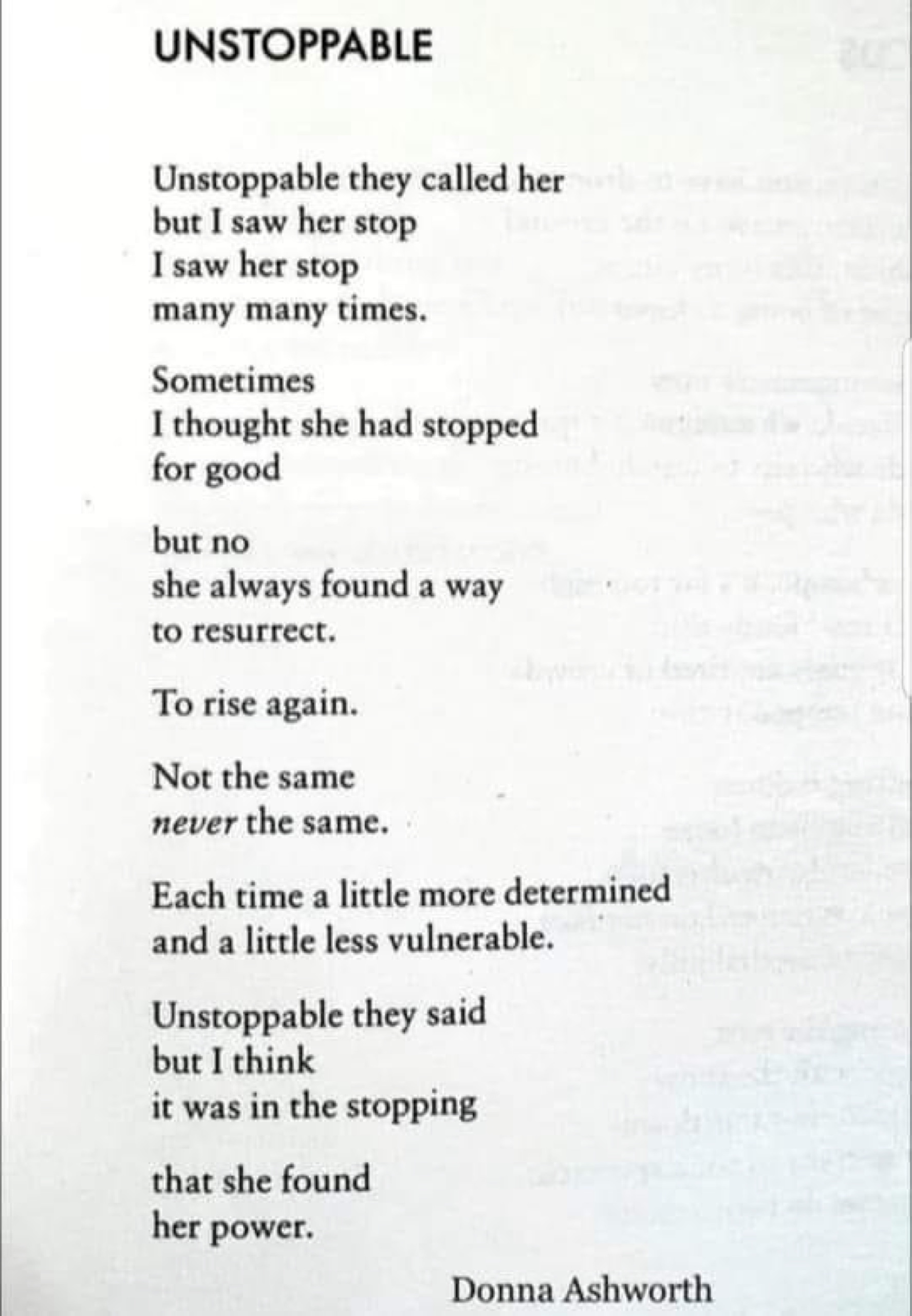
It might be worth taking a little time to explore - gently - the areas in your life where you don't always feel great about yourself, and question whether or not that is, in fact, reasonable.
If you are doing something that doesn't serve you well, or that hurts others, the best way to stop feeling bad about it is to stop doing that thing. Or indeed, if you are bothered by something you aren't doing, the antidote is to get on and do it. But so often, we beat ourselves up for not being able to do everything all at once, and our ideals are impossibly high. Our own growth as human beings is an intrinsically rewarding process, but allowing ourselves just to be ourselves is important, too.
Guilt might be a good indicator of something we shouldn't have done (and therefore not to do again) but shame is a senseless drain on our joy and energy, eating away at our confidence and sense of worth.
Let me know what you think about all this. Any revelatory examples of how shame has shaped your life, and what you might do about it? As ever, just drop me a line.